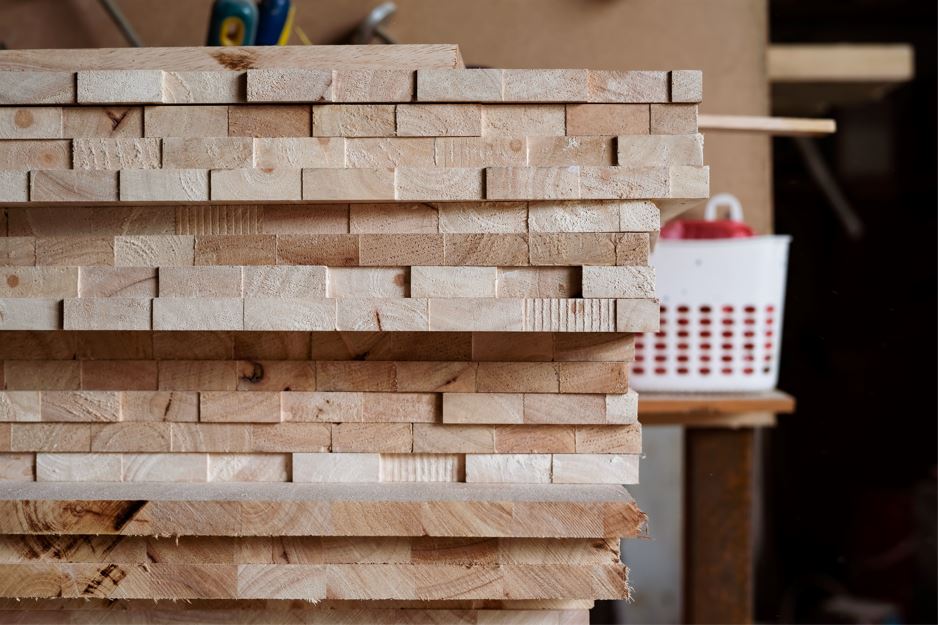
How to choose the ideal materials for your construction work
The selection and purchase of materials for your construction work is a fundamental step in the construction schedule. This is because, just as the quality of a recipe directly depends on the quality of the ingredients, the final result of a work depends on the materials used in its construction.
It may seem like a very simple task, after all, what is the difficulty in making a list of items and buying them in one place? And the answer is very clear: one wrong choice and your whole project can go wrong.
No wonder that, in most cases, there is a person specialized in the purchase of construction materials responsible for budgeting and material selection. In other situations, the contractor himself may recommend brands and types of materials he prefers.
But if you’re just starting out or are responsible for purchasing the materials, don’t worry. In this content we bring practical tips on how to choose the ideal construction material for your project. Check out!
Building material: how to choose correctly

1. Have a well-defined construction schedule
Having a well-defined work schedule is important for two main reasons: you know exactly when you will need each material and you can purchase the materials separately.
That way, you save space by accumulating materials that you won’t be using anytime soon, as well as having more time to research some options. If you find what you need in a more distant store, which will require a little more time for delivery, having the deadlines in hand ensures that no stage of the work will be delayed.
Another important point is to be careful when purchasing some materials that can easily spoil, such as sand and cement. External climatic factors and other interferences can compromise the quality of the product. Therefore, purchase these items for a short time before use.
Some building materials chains are also in the habit of running sales promotions at significant discounts from time to time. If you already have the work schedule in hand, you can assess whether it’s worth taking advantage of the promotion to buy everything you need.
2. Make a listing of products you need to buy
Have you ever had the experience of going to the supermarket without a shopping list? You probably forgot to buy something or bought what you didn’t need and ended up spending a lot more. Furthermore, it’s quite possible that you’ve wandered through the hallways trying to remember, which has lost a lot of time.
The same is true when you don’t have a specific list of the products you need to buy for your project to progress. Have you ever thought about going to a building materials store, or calling a supplier to ask for a quote, without a list of what you need?
Surely the task will be much more difficult, if not impossible. This is because you will not always be aware of all the items needed for each stage of the project, this is the type of information that only the technical and operational teams will be able to provide.
So the ideal solution is to talk to everyone responsible for each area of the project and request a list of the materials needed. Also, take the opportunity to order the estimated quantities and always follow the deadlines in the work schedule.
3. Visit stores and negotiate prices
Mainly in cases of large projects, negotiation is essential for saving money and getting the best budget. Once you have the list with all the necessary materials in hand, visit construction stores, contact suppliers and request quotes.
What is important to assess here? Firstly, the quality of the material, followed by the availability of delivery and, finally, a fair price that is within your budget. It’s no use closing with the supplier who gave the best price bid, if the quality of the products is much lower.
In the end, the cheap ends up being much more expensive. In addition to jeopardizing the project’s success and the entire structure of its construction.
The secret, at this stage, is to know how to put everything in balance, evaluate carefully and have a wide availability of suppliers. When you directly evaluate all the options, it becomes much clearer which makes more sense for your project or not and allows you to have arguments to negotiate.
So, golden tip: never trade with less than three suppliers and never close on the first offer.
4. Prioritize sustainable and highly durable products
We know that, with the advance of exploitation of natural resources, humidity has gradually destroyed their common home. Thousands of species of animals are condemned, air, land and water pollution, temperature rise, sea level rise due to melting glaciers etc.
The list of natural damages is immense and it is up to each one of us to seek solutions that are friendly to the environment and save natural resources. The transformation starts from changing daily habits, saving water and energy, to choosing the materials used in civil construction.
But for those who are still not very concerned about the environment, here’s an important piece of information: sustainable products tend to be cheaper than conventional products.
However, it is not enough just to guarantee that the product has the sustainable material seal. It is necessary to verify if, in fact, that product is compatible with your project and offers high durability.
5. Search about the brand
This last item is an essential step before closing any purchase: assess the brand’s reputation. If it’s a brand you already know and are used to using, that’s fine. But if it’s a brand new or still unknown to you and your team, a good deal of mistrust won’t hurt.
Talk to other colleagues in the industry and ask if any of them have worked with the brand, what their experience was and if they recommend it. If you don’t personally know anyone who can share this information, search the internet for feedback, ask in forums and complaint sites.
If, even so, you are still suspicious, a good option is to ask the brand to send some samples of the product so you can try it out.
Visiting fairs and events focused on civil construction is also a great opportunity to meet new suppliers and products launched in the market.
Did you like our content? Then read also: What to take into consideration when hiring a construction team?







